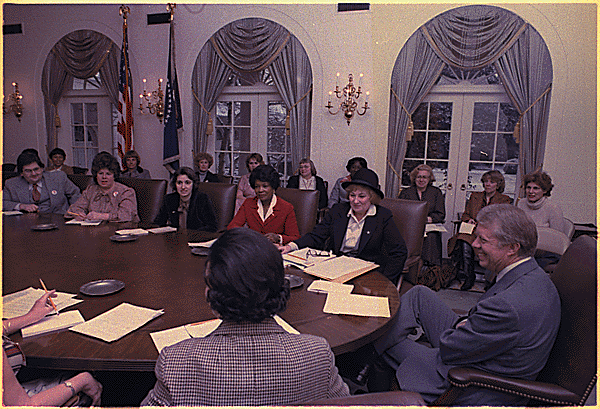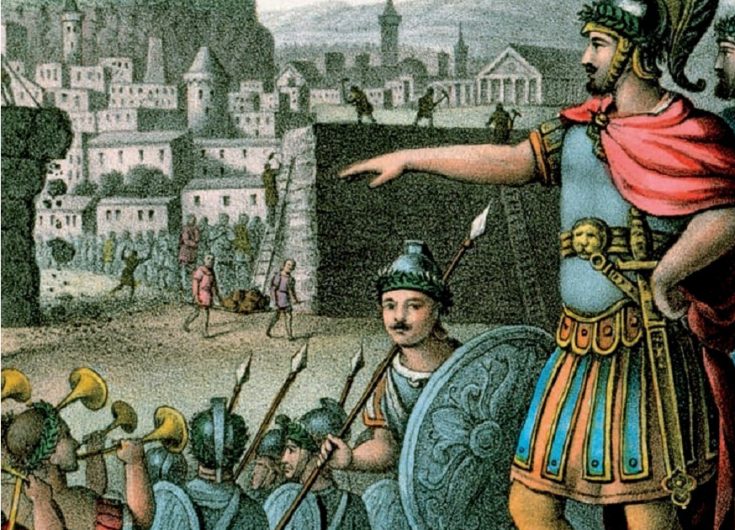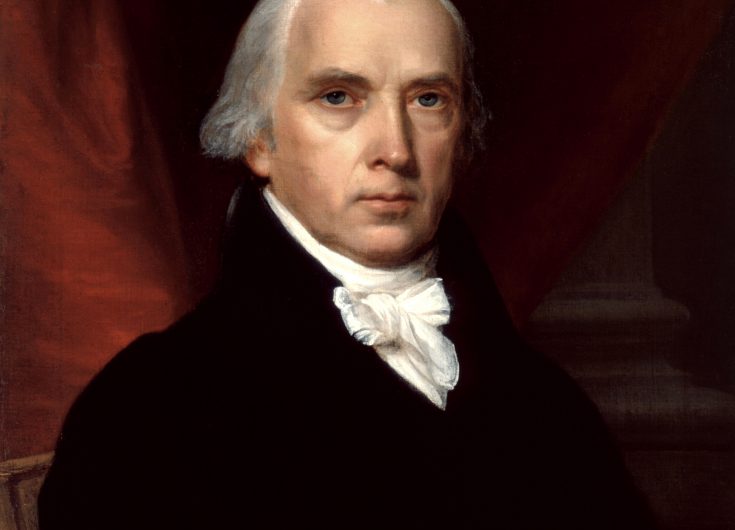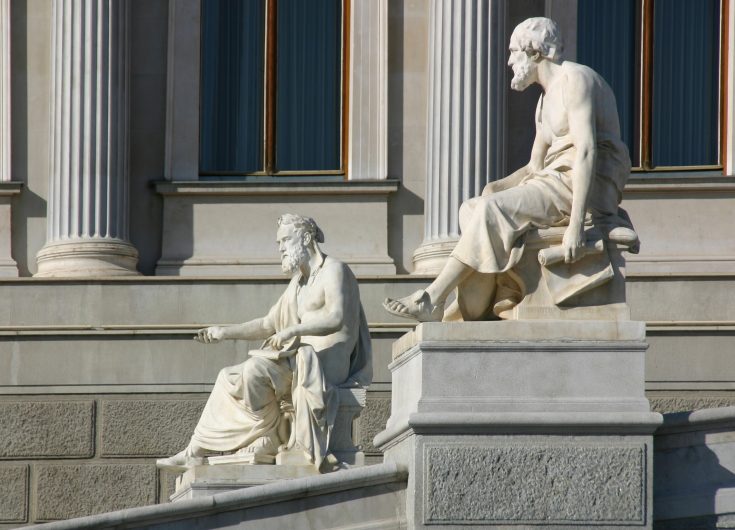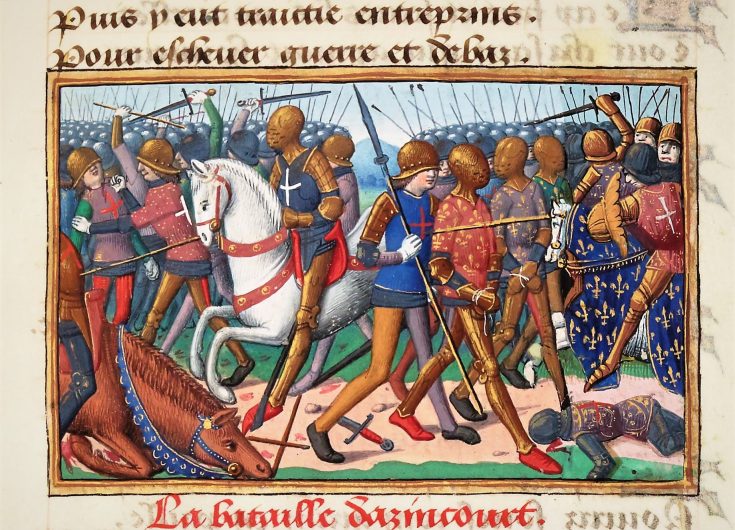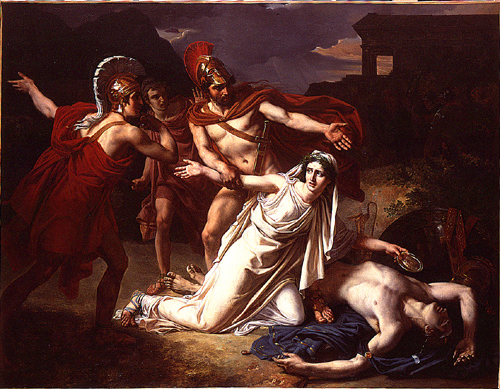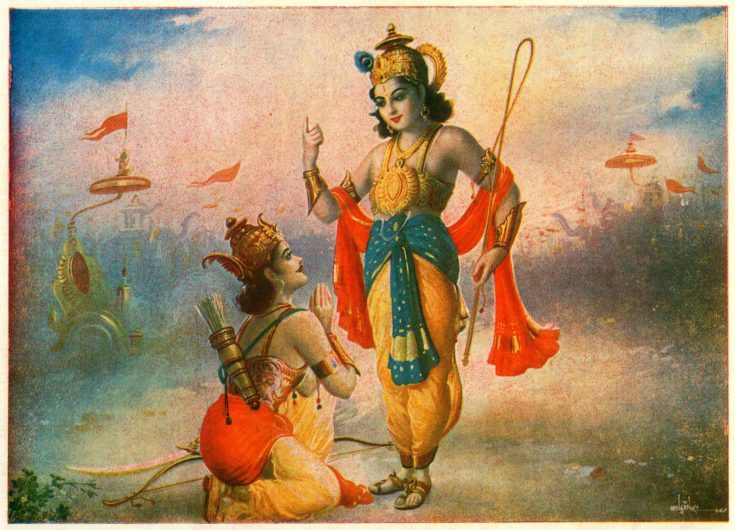

Bhagavad Gita (3rd Century BC- 3rd Century AD)
Great works of literature, including religious literature, often have a major influence on the strategic culture and outlook of civilizations and nations. The Bible and Homer are certainly prime exhibits. Yet such literature does not always generate a single strand of thought about war and peace, but often competing strands, or ideas that metamorphose under different circumstances. In a New York Review of Books essay, Wendy Doniger asks: How did Indian tradition transform the Bhagavad Gita (the “Song of God”) into a bible for pacifism, when it began life, sometime between the third century BC and the third century CE, as an epic argument persuading a warrior to engage in a battle, indeed, a particularly brutal, lawless, internecine war?




